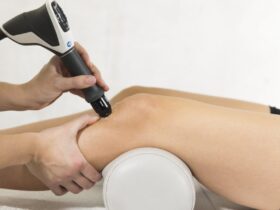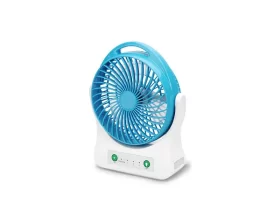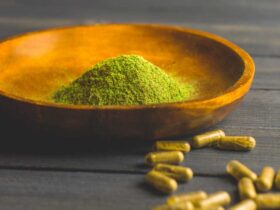Most people who’ve suffered from acne wash their faces once or twice a day for no more than two minutes with some soap and water. While this will clean the surface of your skin, the pores in your face are another story.
Clogged pores are one of the most common skin concerns, but many myths exist about what causes them and how to treat them.
Let’s debunk some of the most common clogged pore myths!
What Are Clogged Pores?
There are a lot of myths out there about clogged pores. So, let’s set the record straight.
Here are the facts: everyone has pores. Pores are tiny openings in the skin that allow sweat and oil to escape.
When pores become clogged, they can become noticeable. Blackheads and whiteheads are types of clogged pores. While clogged pores can be a nuisance, they are not harmful.
There are a few things you can do to prevent and treat clogged pores, such as: cleaning your face daily, exfoliating, using products that contain salicylic acid or benzoyl peroxide, and avoiding oil-based products.
Fact or Fiction?
Clogged Pores Means You’re Dirty
Clogged pores are enlarged pores filled with sebum, dead skin cells, and sometimes bacteria. Contrary to popular belief, clogged pores are not a sign that your skin is not clean.
Over-cleansing can make pores appear more prominent. The best way to cleanse pores is with a gentle, alcohol-free cleanser followed by a pore-refining toner.
Clogged Pores Are the Cause of Acne
Many factors can contribute to the causes of acne, but clogged pores are not one of them. Contrary to what people think, acne is not caused by dirt or oil build-up in the pores. Scrubbing the skin too vigorously can make acne worse by irritating the skin and causing inflammation.
Clogged Pores Are a Symptom of Acne
Acne is a condition of the skin that causes clogged pores. Clogged pores are a symptom of acne, but they are not the cause.
Acne is caused by hormones, stress, genetics, and improper skin care routine. While clogged pores can contribute to the development of acne, they are not the root cause.
How to Tell the Difference Between Clogged Pores and Acne
Clogged pores are minor, flesh-colored bumps that may be visible on the skin’s surface. They may be surrounded by redness, but they are not usually painful.
Now, what is fungal acne? Acne, conversely, is characterized by larger, pus-filled bumps that are often painful to the touch. Acne can also lead to cysts and nodules, much larger than clogged pores.
If you’re unsure whether you have clogged pores or acne, it’s best to consult a dermatologist.
Myths Debunked!
There’s a lot of information about clogged pores, and it can be tough to sort through it all. Hopefully, this article has helped clear up some myths and misconceptions about clogged pores.
Check out our blog for more skincare, health, or lifestyle information. We have tons of helpful content featured daily, so you never have to look far for help.











